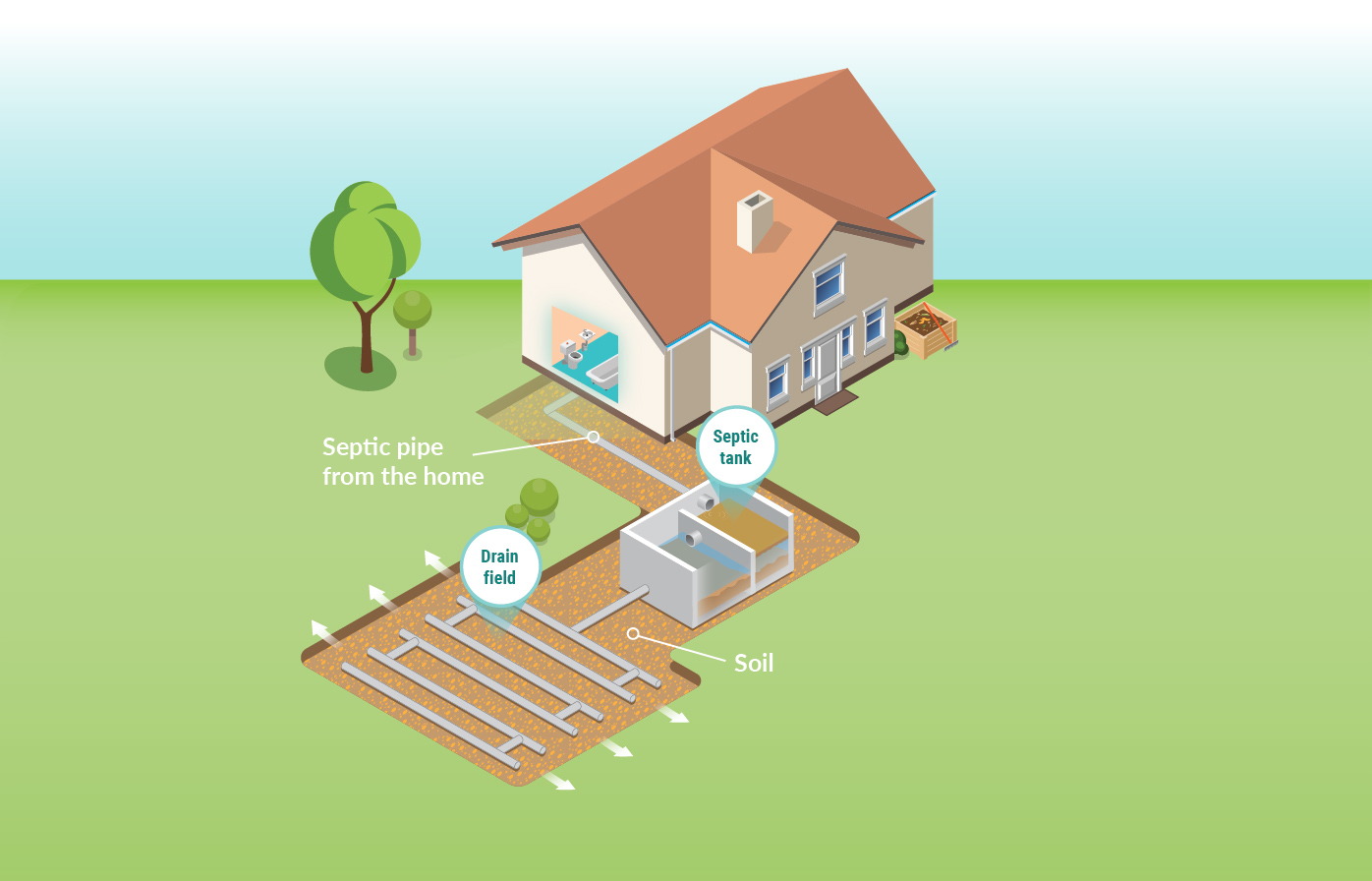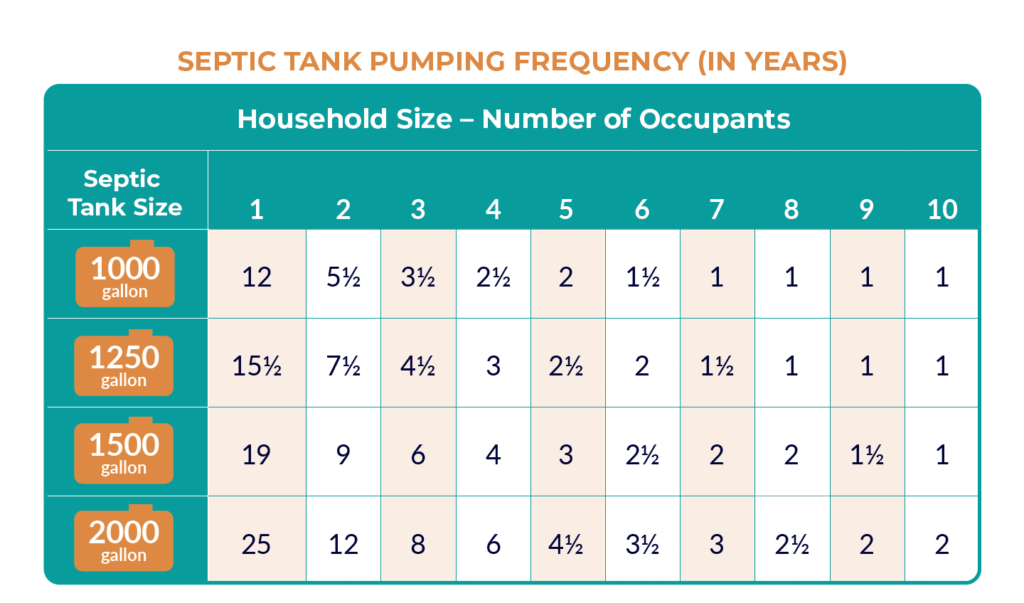Septic System Maintenance
Homes not connected to the public sewer system generally have a septic tank system to treat and dispose of wastewater. Wastewater and sewage are collected in a tank where they are slowly broken down through natural processes. The water is then released via drain lines where it infiltrates into the ground and is further purified. If a septic system fails, significant property and environmental damage can occur, which homeowners are responsible for. Prevent costly emergencies such as pipe breaks and leaks by properly maintaining your septic system. If your system fails, sewage containing harmful bacteria and viruses can flow untreated into our waterways becoming a hazard to human health and resulting in beach closures.

Tips For Septic Tank Maintenance:
Only Wastewater Down the Drain
- Anything other than wastewater, like cooking oils, solvents, and cigarettes, can cause problems with your septic tank and pollute the groundwater.
- Place solid materials like sanitary products, cotton balls, baby wipes, and flushable wipes in the trash since these can clog pipes. Only septic safe toilet paper should enter the septic system.
- Properly dispose of chemicals like unused cleaners, bleach, and medication at a local household hazardous waste collection facility.
- Additives like commercial septic tank cleaners, yeast, and sugar are not necessary and can harm your septic tank system.
Monitor Water Use In Your Home
- Using excess water can decrease the life of the drain field and increases the chances of a system failure.
- Repair leaking faucets and plumbing fixtures.
- Take shorter showers.
- Only wash full loads of dishes and laundry.
Perform Regular Maintenance
- Have your septic system inspected by a licensed septic tank professional every three to five years. Never enter the septic tank yourself, as the poisonous gases or lack of air can be fatal.
- Inspect the drain field and downslope areas for odors, wet spots, or surfacing sewage. Contact a licensed professional immediately if you see these warning signs.
- Pump your septic system routinely to prevent failures like backups into your home.
Protect the Septic System
- It is critical to leave the area over the drain field undisturbed to prevent pipe damage or waste from flowing into the storm drain system.
- Keep vehicles and livestock away from the drain field.
- Ensure runoff from your roof, driveway, or patio flows away from the septic tank and drain field.
- Plant new trees or large shrubs at least several feet from the drain field.
How often should You Pump Your septic tank?
Contact a licensed professional to determine the best pumping frequency for your septic system. Pumping frequency varies based on the size of your tank and how many people live in your home. The chart below provides estimates for pumping frequency; for example, if you have a 1,000-gallon tank with 5 people living at your home, you will need to pump your tank approximately once every 2 years.
More Information
For more information on septic system maintenance, check our brochure below:
